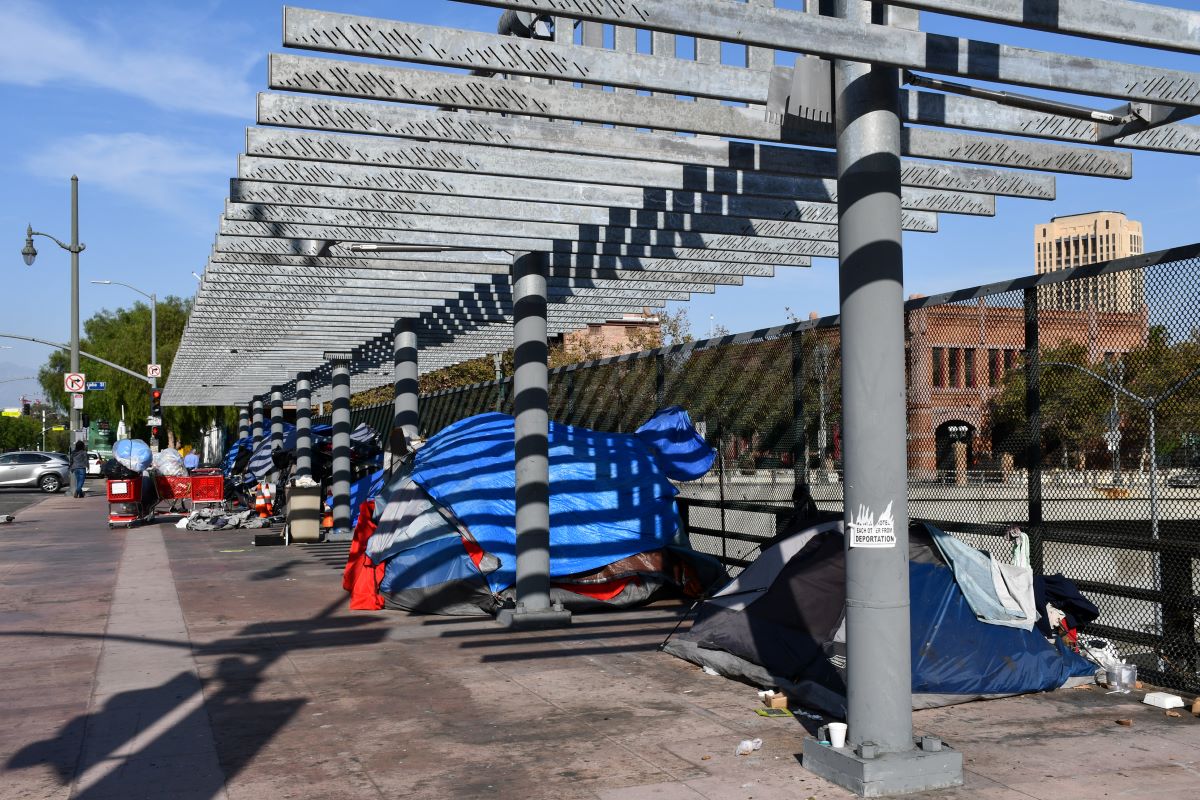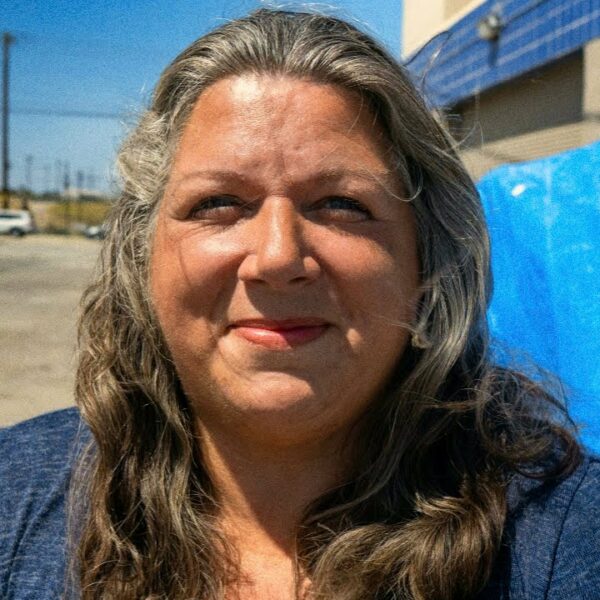Cities spanning from New York to Los Angeles continue to spend millions to sweep homeless encampments despite there being no evidence that the practice reduces homelessness.
The sweeps are happening as public pressure against local officials to remove homeless encampments grows. However, homeless people and housing advocates say sweeps are an inhumane and misguided response because they force people to move from block to block instead of into housing.
“We are seeing an increase in these laws at the state and local level that criminalize homelessness, and it’s really a misguided reaction to this homelessness crisis,” ACLU of New York Staff Attorney Scout Katovich told the Associated Press.
Encampments have become a common fixture in many cities across the U.S. as rates of homelessness continue to rise.
According to the last “point in time count,” which is conducted by volunteers every January, there were more than 580,000 people experiencing homelessness across the country in 2022. That nationwide total is expected to rise in 2023 as cities like Denver, Las Vegas, and Atlanta have reported significant increases in local homelessness.
In response, local officials commonly deploy police officers, sanitation workers, and other contractors to remove homeless encampments.
Advocates describe the practice as “homeless sweeps” because the crews force camp residents to pack up and move. Homeless people have reported losing essential items like identity documents, medicines, and contacts with social services because of the sweeps.
But the detrimental impact of the sweeps on homeless people themselves hasn’t stopped city officials from continuing the practice. For example, the AP found that sweeps in Phoenix, Arizona—once home to an encampment of more than 800 people called “The Zone”—increased to more than 3,000 in 2022 from around 1,200 in 2019.
In California, Gov. Gavin Newsom said he is dedicating roughly $300 million to local jurisdictions and the state transportation department to remove encampments from state property.
“We weren’t just cleaning up encampments – out of sight, out of mind – and displacing people, removing people, but that we’re trying to resolve the underlying issues in the first place and actually support people in getting them back on their feet to self-sufficiency,” Newsom said in a virtual news briefing on November 27.
The cost of sweeping encampments can vary widely.
Estimates from Denver suggest that the city spends about $400,000 per year to conduct roughly 120 sweeps. However, a city audit from April 2023 found that local leaders do not keep an accurate accounting of the costs.
Sweeps are also an ineffective way to connect unhoused people with services and housing programs, according to a New York City Comptroller report.
The report found that just 5% of the more than 2,300 people contacted during sweeps between March and November 2022 were placed in temporary shelters. It also found that 31% of homeless encampments returned to the sites they were swept away from.
Invisible People interviewed a homeless woman who goes by “Lux” in Seattle who was caught up in a recreational vehicle sweep in August. Lux, 19, has been experiencing homelessness since she was 16 and said she has been forced to move about 20 times over those three years. She worries that the next sweep may result in her vehicle being impounded, which would make it much harder for her to survive the cold Pacific Northwest winters.
“I really don’t know what I would do without my RV; I don’t even want to think about it,” Lux told Invisible People.
Some advocates are pushing for cities to stop encampment sweeps as winter approaches.
For instance, Denver City Council members Sarah Parady and Shontell Lewis recently presented plans to stop the city from performing sweeps during severely cold weather and instead focus on opening warming centers, Axios reported.
Advocates in Portland have asked local officials to take a similar approach, but it remains to be seen if the campaigns will be effective.
How You Can Help
Now is not the time to be silent about homelessness anywhere. Unhoused people deserve safe and sanitary housing just as much as those who can afford rent or mortgage.
Poverty and homelessness are both policy choices, not personal failures. That’s why we need you to contact your officials and tell them you support legislation that:
- Streamlines the development of affordable housing
- Reduces barriers for people experiencing homelessness to enter permanent housing
- Bolsters government response to homelessness
Together, we can end homelessness.













